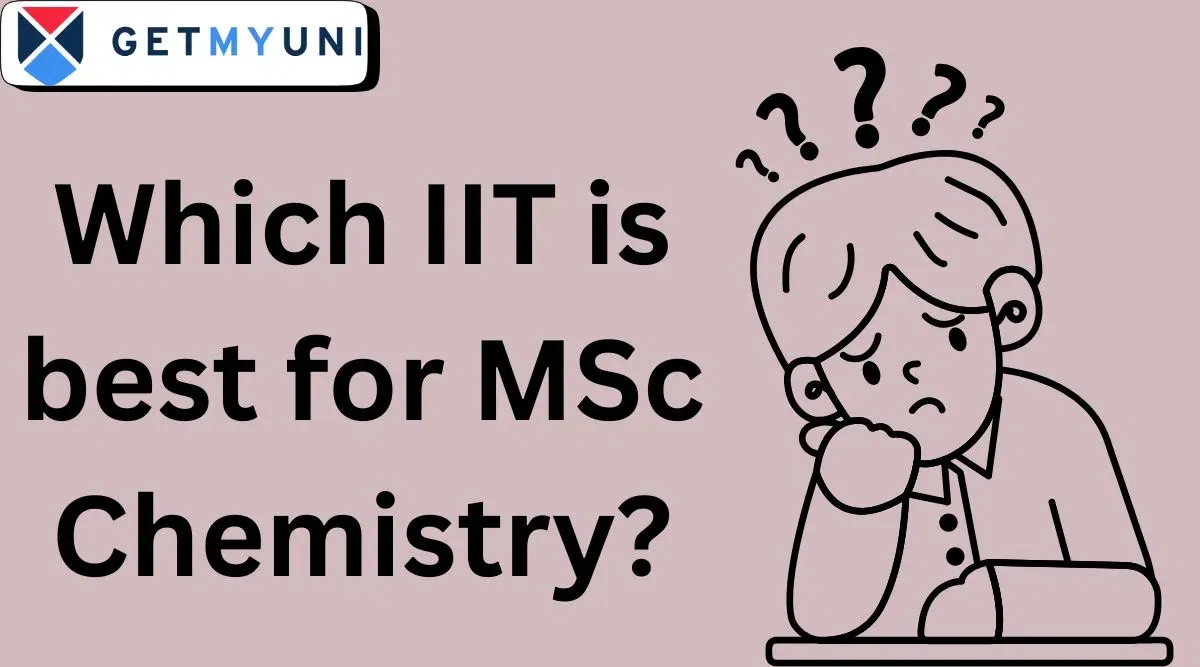Are you confused about B.Sc Agriculture Vs B.Sc Horticulture? Get all of your answers right here, including the course details, eligibility, salary, colleges and much more.
Both B.Sc Agriculture and B.Sc Horticulture are science degrees; however, they differ significantly. B.Sc Agriculture includes four years of research and practical training in agricultural science. At the same time, a B.Sc in Horticulture is a 4-year undergraduate course that deals with breeding vegetables, cereals, fruits, orchids, and other plants. Both the courses are career-oriented and provide students with in-depth expertise.
This article will compare and contrast B.Sc Agriculture vs B.Sc Horticulture and their benefits, job roles, salaries, and working sectors.
B.Sc Agriculture vs B.Sc Horticulture - Key Highlights
The key highlights of B.Sc Agriculture vs B.Sc Horticulture are mentioned below:
| Particular | B.Sc Agriculture | B.Sc Horticulture |
| Full-form | Bachelor of Science in Agriculture | Bachelor of Science in Horticulture |
| Duration | 4 Years | |
| Level | Undergraduate | |
| Eligibility | 50% in 10+2 Science | 50-55% in 10+2 Science |
| Admission Process | Entrance-based | |
| Higher Education Scope | M.Sc in Agriculture, MBA | M.Sc in Horticulture, MBA |
| Career Prospect | Agriculturalist, Agricultural Research Scientist, Agriculture Development Officer, Agriculture Technician, etc | Landscape Designer, Horticulturist, Operations Manager, Greenhouse Manager, Landscape Architect, Landscape Manager, etc. |
B.Sc Agriculture vs B.Sc Horticulture - Overview
B.Sc Agriculture is a four-year programme that covers various topics related to multiple farming methods and their benefits, and issues concerning specific agricultural practices to increase productivity. Graduates with a B.Sc degree in Agriculture can work in various agricultural departments, ranging from technical matters to business prospects and production to sales.
Read More: B.Sc Agriculture
B.Sc Horticulture is also a four-year, full-time undergraduate programme that focuses on advanced agriculture science fields such as plant cultivation and seed research. In addition, the certified B.Sc Horticulture degree allows graduates to find work as a horticulture therapist, interior plant technician, floriculturist, or ornamental horticulturist.
Read More: B.Sc Horticulture
B.Sc Agriculture vs B.Sc Horticulture - Eligibility
The eligibility requirements for B.Sc Agriculture vs B.Sc Horticulture courses are similar. However, there are a couple of minor differences, which are discussed below:
B.Sc Agriculture Eligibility Criteria
Here's everything you need to know about the requirements for admission in B.Sc Agriculture:
- Students must have passed 10+2 with a minimum of 50% aggregate marks from a recognized board with courses such as Physics, Chemistry, Biology, and Mathematics to be eligible for admission to the B.Sc Agriculture in India programme.
- Also, as a necessary language, the applicant must have finished English.
- Applicants must be at least 17 years old to apply for this course.
B.Sc Horticulture Eligibility Criteria
The following are the eligibility requirements for the B.Sc Horticulture course:
- Aspirants must pass 10+2 exams from only recognized school boards to be admitted to the B.Sc Horticulture programme.
- To qualify for the exam, you must have an overall minimum aggregate of 50% to 55%.
- The required age range is 17 to 25 years old.
- Physics, Biology, and Chemistry must be studied as compulsory subjects in 10+2 for aspirants.
B.Sc Agriculture vs B.Sc Horticulture - Admission Procedure
The admissions procedures for B.Sc Agriculture vs B.Sc Horticulture are very similar. Both processes are described in detail below.
B.Sc Agriculture Admission Procedure
The admission process of B.Sc Agriculture is:
- The first step in this process is to fill out the entrance exam admission forms online or offline, attaching all necessary papers, such as the Aadhaar card, voter ID card, and 10th and 12th-grade mark sheets.
- After the results are released, the cut-off marks will be declared.
- The aspirants who have passed the cut-off will participate in online counselling after that.
- Applicants must have options for universities to which they wish to apply during online counselling.
- The admissions committee then assigns candidates to colleges depending on their grades. The institute will send an allotment letter to everyone who has been chosen. The candidate must show up.
- Those who are eligible are then granted admission to the course.
B.Sc Horticulture Admission Procedure
The admission process of B.Sc Horticulture is:
- Admission can be obtained by an online, offline, or manual complex approach, which entails visiting the campus with appropriate documents and paperwork.
- After passing the entrance exam for B.Sc Horticulture colleges, a final list of names of applicants for B.Sc Horticulture admission will be released.
B.Sc Agriculture vs B.Sc Horticulture - Entrance Exams
A variety of admission tests are held to determine eligibility for the B.Sc Agriculture and Horticulture programs. Below is a list of some of the B.Sc Agriculture vs B.Sc Horticulture entrance exams:
B.Sc Agriculture Entrance Exams
The following are some of the most popular domestic examinations for admission in this course in Indian colleges:
B.Sc Horticulture Entrance Exams
B.Sc Horticulture consists of the following national and state-level entrance exams:
B.Sc Agriculture vs B.Sc Horticulture - Benefits
B.Sc Agriculture is an enthralling course with an undergraduate degree in agriculture focusing on agricultural science and techniques. On the other hand, Horticulture is the cultivation and fertilization of plants in gardens to produce food and medicine ingredients. Here are some of the benefits of B.Sc Agriculture vs B.Sc Horticulture:
Why Choose B.Sc Agriculture?
The merits of pursuing B.Sc Agriculture are:
- The Bachelor of Science in Agriculture is a broad-based programme with great potential. It includes topics such as Food Production, Horticulture, Animal Husbandry, Rural Economy and Development, Environmental Health, etc.
- Other industries will face layoffs, but agriculture will never be one because "food" is a basic human need. There will never be a contraction or a slowdown when it comes to feeding the world.
- As a result, candidates who choose B.Sc Agriculture are essentially establishing a primary source of income for the future.
- Possibilities for employment after completing a B.Sc Agriculture are becoming more available as graduates have numerous options for starting their businesses in the primary economy, such as forestry, plantations, fishing, mining, cattle ranching, poultry farming, and so on.
Why Choose B.Sc Horticulture?
The merits of pursuing B.Sc Horticulture are:
- B.Sc Horticulture is a great degree to take if you want to learn about some unique strategies for growing plants such as vegetables, fruits, and flowers.
- Students will learn in-depth about plants utilized for food, medical uses, and aesthetic purposes in this subject.
- The work scope of this course assists candidates in gaining a better understanding of agriculture fields, increasing yield, and improving skill sets and experience.
B.Sc Agriculture vs B.Sc Horticulture - Syllabus
The curriculum and syllabus for the B.Sc Agriculture vs B.Sc Horticulture are all science-based. The syllabi for these courses differ, and they may alter based on the institution. The lists that follow will help you get a better idea:
B.Sc Agriculture Syllabus
The syllabus of B.Sc Agriculture is:
- Fundamentals Of Agricultural Economics
- Fundamentals Of Agronomy
- Fundamentals Of Plant Biochemistry And Biotechnology
- Fundamentals Of Soil Science
- Agri-Business Management
- Crop Improvement And Food Safety
- Integrated Crop Management
- Applied Horticulture
- Agro-industrial Training
- Introduction To Forestry
- Intellectual Property Rights
- Principles Of Organic Farming
Read More: B.Sc Agriculture Syllabus and Subjects
B.Sc Horticulture Syllabus
The syllabus of B.Sc Horticulture is:
- Remote Sensing
- Entrepreneurship Development
- Seed Production
- Processing of Horticulture Crops
- Temperate Fruits
- Ornamental Horticulture
- Biochemistry
- Principle of Plant Physiology
- Fundamentals of Geology
- Soil Science
- Processing of Horticulture Crops
- Horticulture Business Management
Read More: B.Sc Horticulture Syllabus and Subjects
B.Sc Agriculture vs B.Sc Horticulture - Career Scope
B.Sc Agriculture is a degree that includes Agricultural Microbiology, Soil Science, Genetics and Plant Breeding, Plant Pathology, Food Microbiology, and other subjects. In comparison, the programme B.Sc Horticulture encourages participants to use organic methods to cultivate their skills and techniques in plants, in gardens to produce food and medicine. The following are some of the perks of B.Sc Agriculture vs B.Sc Horticulture courses in terms of employment prospects:
Career Options after B.Sc Agriculture
B.Sc Agriculture graduates can work in a variety of areas, including the ones listed below:
- Banking Sector
- Defense Sector
- Agricultural Journalism
- Agriculture-related Industry
- Corporate Houses
- NGOs
Graduates of the B.Sc in Agriculture programme have a wide range of career options. The following are some of the jobs that B.Sc Agriculture professionals can pursue:
- Agriculture Officer
- Agricultural Research Scientist
- Agriculture Technician
- Agriculturists
- Business Development Executive
- Seed Officer
Read More: B.Sc Agriculture Jobs & Scope
Career Options after B.Sc Horticulture
B.Sc Horticulture graduates have several alternatives available; all they have to do is take advantage of them. Graduates of this programme can pursue careers in a variety of sectors, including:
- Defence
- Healthcare Industries
- WHO
- UNESCO
- Space and Research Agencies
- Agriculture fields
- Organic Industries
The work scope for graduates in B.Sc Horticulture is expanded in various fields. A few related jobs are listed below:
- Project manager
- Foreman
- Horticulturist
- Horticultural Education Supervisor
- Assistant Manager Human Resources
- Plant pathologist
- Consultant in Horticulture
- Ornamental Horticulturist
- Landscape Designer
Read More: B.Sc Horticulture Jobs & Scope
B.Sc Agriculture vs B.Sc Horticulture - Salary
The salary ranges for B.Sc Agriculture and B.Sc Horticulture differ depending on experience and skill level. The following are the salaries for some of the standard B.Sc Agriculture vs B.Sc Horticulture designations:
B.Sc Agriculture Salary
The average salary after pursuing B.Sc Agriculture is:
| Designation | Average Salary |
| Senior Product Manager | INR 14 LPA |
| Agriculture Specialist | INR 4.4 LPA |
| Area Sales Manager | INR 5 LPA |
| Credit Manager | INR 4.3 LPA |
Read More: B.Sc Agriculture Salary
B.Sc Horticulture Salary
The average salary after pursuing B.Sc Horticulture is:
| Designation | Average Salary |
| Assistant Manager Human Resources | INR 2 LPA |
| Horticulturist | INR 3 LPA |
| Scientist | INR 6 LPA |
| Project Manager | INR 2 LPA |
Read More: B.Sc Horticulture Salary
B.Sc Agriculture va B.Sc Horticulture - Top Colleges
A student can select from several universities and colleges that offer one or both of these courses. The colleges listed below are significant to the B.Sc Agriculture vs B.Sc Horticulture debate:
Top Colleges in India for B.Sc Agriculture
The top colleges to pursue B.Sc Agriculture are:
- Pantnagar University (GBPUAT)
- Junagadh Agricultural University
- Chandigarh University
- Shivaji University
- OUAT, Bhubaneswar
- University of Agricultural Sciences
- Annamalai University
- Bharath University
Top Colleges in India for B.Sc Horticulture
The top colleges to pursue B.Sc Horticulture are:
- Indira Gandhi Agriculture University
- University of Agriculture Science
- University of Horticulture Science
- Chandigarh University
- BFIT Group of Institution
- Bihar Agriculture University
- Mewar University
- Anand Agriculture University
Also Read: Top 10 Agricultural Universities In India
B.Sc Agriculture vs B.Sc Horticulture - Which is Better?
B.Sc Agriculture and B.Sc Horticulture students have many options for further education. Following undergraduate education, students can pursue various M.Sc or MBA programs. But which is better among the two of them is mentioned below:
Demand: There has been an increase in qualified experts in agriculture during the last several years. Agriculture has undergone a modernized revolution due to technological improvements, and such specialized and informed professionals have emerged. Aspiring horticulturists can work in horticulture-related institutions, such as vegetable farms, plantations, and fruit groves.
Career Growth: Students pursuing a B.Sc in Agriculture can engage in research, development, and administration to improve crop growth. This course is perfect for you if you're a student with qualities like attention to detail, creative vision, problem-solving, critical thinking, and good communication skills who wants to make a difference in the world of horticulture.
In the end, your skillset, ability to work in a given field, and the college where you choose to study your B.Sc Agriculture or Horticulture are the most crucial factors.
Also Read: B.Sc Agriculture Vs B.Pharmacy: Jobs, Scope, Salary, Benefits, Top Colleges









